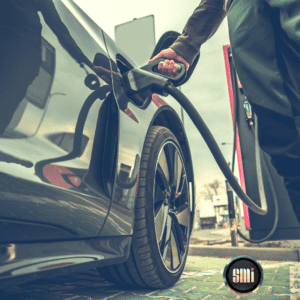Future of Electric Vehicles

Electric vehicles (EVs) are on the rise, and for good reason. They have a number of advantages over gas-powered cars, including better efficiency and fewer maintenance costs. In addition, there’s no need to go to a gas station or deal with fluctuating prices — all you need is an outlet and some power.
The efficiency of electric cars is much higher than that of gas-powered vehicles. They have regenerative braking systems, which recover energy from the brakes and use it to charge the battery pack. This reduces wear on your brake pads, making them last longer than they would otherwise. In addition, electric cars can also be charged at home rather than having to be filled up with gas every week or two like traditional cars do–and they don’t produce any emissions while driving.
Electric vehicles (EV) production is now proven to be both viable and economic. And with government regulations demanding new cars be fully electric, there’s now a renewed rush to acquire and refine battery-grade minerals and metals.
It’s possible that efficiency could get even better in the future. Battery technology is improving, and so are other parts of EVs. Batteries are getting smaller, lighter and more efficient–and they’re also getting cheaper as demand grows. This means that it’ll be easier for automakers to add electric powertrains to their vehicles without increasing their costs or making them less appealing overall.
The battery life of electric cars is being improved. This is the main obstacle to EV adoption, and it’s improving at a steady pace. But the rate of improvement isn’t as fast as many people would like it to be.
Meeting energy transition expectations adds an increase on the supply of critical materials. For battery production alone, a conservative estimate from the International Energy Agency (IEA) suggests that by 2030 we’ll need 50 additional lithium mines and 60 for nickel. We’ll also need to add 50 new cathode and 40 new anode active material manufacturing plants to produce high-performance battery materials.
Seal Methods meets this challenge head on by partnering with our customers and other key stakeholders across the value chain to build a sustainable supply chain at speed and scale. We consult, engineer and construct solutions, from mining of raw materials through all the intermediate processing steps to active materials manufacturing and recycling.
The cost of EVs is coming down, as is the cost of batteries –a trend that will accelerate as EVs become more popular and demand increases. And electric vehicles are becoming more efficient and cheaper to maintain in general: You don’t have to pay for oil changes or tuneups, which can add up fast over time.
The bottom line? It’s true that electric cars still cost more than gas-powered cars on average–but that gap is narrowing every year as technology improves and economies of scale kick in (meaning manufacturers can produce them more cheaply).
As electric vehicle technology advances and charging stations become more prevalent, the advantages of EVs will be more widely recognized by consumers.
Electric vehicles have a bright future ahead of them. According to The Guardian, electric vehicles are the most efficient form of transportation and can reduce emissions by up to 90% if used instead of gas-powered cars.
In addition to being more environmentally friendly, electric vehicles are also becoming more popular: according to Bloomberg New Energy Finance, there were 2 million electric cars on the road globally by the end of 2017–an increase from just 1 million at the end of 2016. And new models such as Tesla’s Model 3 have been released with lower prices than previous models like its Model S or X (though these prices may go up once federal tax credits expire).
We think that electric vehicles have a bright future ahead of them. They are cheaper to operate than gas-powered cars, they’re more efficient, and they don’t emit any pollution. In addition, their batteries last longer and can be recharged at home or on the go. Plus there are many new models being developed right now that will help even more people make the switch from traditional cars to EVs!
For more information, download our brochure
Please contact us For more information.
